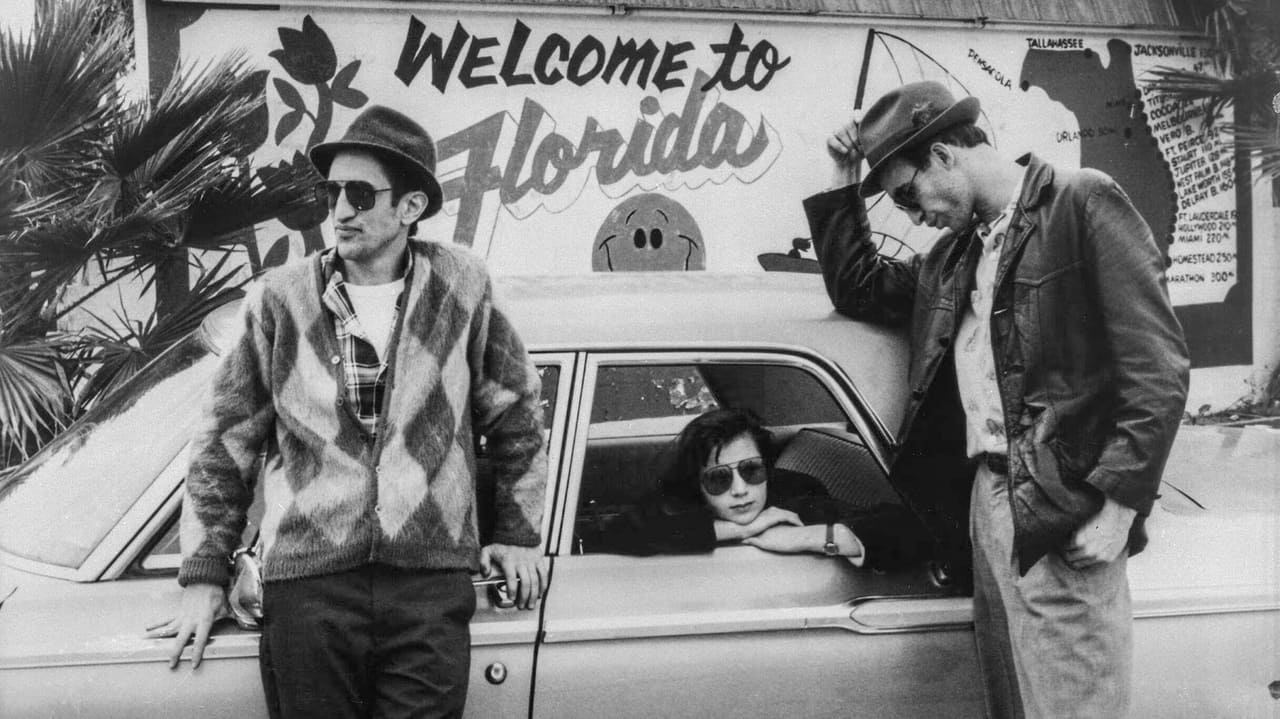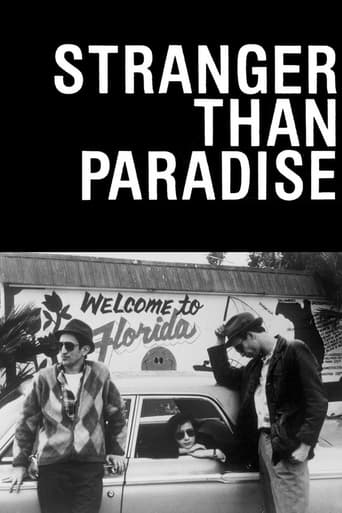Cubussoli
Very very predictable, including the post credit scene !!!
AboveDeepBuggy
Some things I liked some I did not.
Ogosmith
Each character in this movie — down to the smallest one — is an individual rather than a type, prone to spontaneous changes of mood and sometimes amusing outbursts of pettiness or ill humor.
Ezmae Chang
This is a small, humorous movie in some ways, but it has a huge heart. What a nice experience.
fred freeze
A good number of rotten tomatoes for this one but it's so bad it's redeemable and watchable for a second time. The cost of making this film must have been rock bottom. At the end I wish this depressing soap opera continued following the lives of these depressing individuals and their bleak existence. I can see the classic cult appeal to this sad excuse for a motion picture. But I liked it.No sex and almost no bad language. A glimpse into a life of poverty and boredom. A week long trip seeking adventure in dreary Cleveland and traveling to a cheap motel in Florida. I got a good laugh when cousin Eva showed the two dead beats the view of Lake Erie.Suicide Alert - If you're depressed this movie could push you over the edge. :)
wandereramor
I first encountered Stranger than Paradise in a Intro to Film tutorial - - I think it was for the week on cinematography. It was only the opening scene, but the visual style grabbed me right away. The grainy black and white, looking not like a 1980s feature film but rather newsreel of some mid-century atrocity, the long opening shot of Eszter Balint's Eva walking away from the airport like an angel of death, the almost-surreal scene of her walking through the streets blaring "I Put A Spell On You"... it stuck with me. A few years later, I finally got around to watching the film in its entirety. The visual style fades after a while and becomes invisible in the way cinematography tends to. But what emerges in its place is a slow but devastating character drama.Stranger than Paradise is really about the immigrant experience in America. In this way it is a strange, low-key response to The Godfather. Whereas Coppola saw the story of the immigrant as one of struggle, seduction, and eventual corruption -- a Hollywood tragedy, in other words -- Jarmusch argues that it is a grind, an endless procession of ungrateful relatives, incomprehensible television, dead-end jobs, and the slow realization that no matter where you go, the banality of real life is always there ahead of you.Jarmusch was a pioneer in independent American cinema. The style of Stranger than Paradise is echoed in any of the countless "mumblecore" films that deal with the mundanity of contemporary existence (and perhaps existence in general). It is frequently a boring film, mainly because it is about boredom and its omnipresence. Certainly it could be aesthetically improved, so that the dialogue and the characters have the same artistic grace as the cinematography. But somehow I like Stranger than Paradise just as it is. Instead of the catharsis of Hollywood, it leaves the viewer with an emptiness, a strange hole in their gut that they can't quite figure out what to do with. But maybe that hole was always there, and the film only cast a revelatory light on it.
Claudio Carvalho
The New World: The teenager Eva Molnar (Eszter Balint) arrives from Budapest, Hungary, and goes to the house of his cousin Willie, a.k.a. Bela Molnar (John Lurie) in a dangerous neighborhood in New York. Eva intends to travel to Cleveland to stay with her Aunt Lotte (Cecillia Stark), but the old woman is in the hospital and Eva has to stay with the idle Wille, who is absolutely indifferent to her. They spend their empty days smoking Chesterfield, watching television and playing solitaire and Eva befriends Willie's friend Eddie (Richard Edson). Then Willie and Eddie are connected to Eva and they miss her when she travels to Cleveland.One Year Later: Willie and Eddie win a large amount in the poker game and they borrow a car and travel to Cleveland to visit Eva. They spend a couple of boring days in the house of Aunt Lotte.Paradise: Willie and Eddie invite Eva to go on vacation in Florida. However they lose their money in the dog racing. Willie decides to bet their last money in the horse racing and they win money. Meanwhile Eva is wrongly taken by another woman and receives a large amount from a stranger. She leaves money for Willie and Eddie and goes to the airport expecting to travel to Europe, but there is only one flight to Budapest. Meanwhile Willie and Eddie seek her out in the airport. Will Willie find Eva? "Stranger than Paradise" is an ironic and weird tale of emptiness and boredom by Jim Jarmusch, filmed in black and white and divided in three segments (acts). There are funny moments, like for example, when Willie has a phone conversation with his Aunt Lotte and tells that Eva will put his life on hold since the guy spends the days smoking, watching television, playing solitaire and gambling in the horse racing. Then he misses Eva, probably the only different thing that had happened in his boring and empty life. In the end, it is hilarious when Eddie asks to himself: What will Willie do in Budapest? "Stranger than Paradise" is not for every audience but those viewers that also enjoy cinema as art. My vote is eight.Title (Brazil): "Estranhos no Paraíso" ("Stranger in the Paradise")
Magenta_Bob
Rarely have I seen a film with so little action been executed to such great effects. Jim Jarmusch's ode to life in general and boredom in particular is both subtly hilarious and superbly stylish.Most films that deal with people being bored tend to become a bit boring themselves, but Stranger Than Paradise had me sitting with a smile on my face for the entire duration. Its biggest accomplishment is that it seems so true to life – the characters mostly just sit around talking, and the dialogue is remarkably realistic and seemingly improvised. And just like in real life, sometimes they haven't even got anything to talk about, like when Eddie (a wonderfully relaxed Richard Edson) goes to Willie's (John Lurie) apartment, after which they sit quietly staring down into the floor. Even when the two of them go on vacation to Cleveland, they spend most of the time in a house watching television, and Eddie remarks that all places look the same. That being said, the film does have a plot of sorts, even if it is a rather loose one, about Eddie, Willie and Willie's cousin Eva (Eszter Balint) going on a road trip together. Along the way, there are some more directly comedic scenes, such as when Eddie and Willie follow Eva and her date to the movies, or when Willie's aunt beats them all at a card game.The sparse narrative structure is perfectly matched by Jarmusch's simple direction. It makes great use of a static camera, and the black and white visuals are slightly grainy and in a sense quite unremarkable but at the same time strikingly beautiful. The imprecise editing, where most scenes are followed by a second or two of darkness that lets them sink in, along with the recurring use of I Put a Spell on You by Screamin' Jay Hawkins, also adds to the independent, bohemian vibe of the film.Apart from a few subtle cultural references, such as the fact that a race horse is named Tokyo Story, there doesn't seem to be much more to Stranger Than Paradise than what meets the eye. Luckily, there is often not a whole lot more to life either, making this the perfect film to watch whenever you have nothing better to do.

